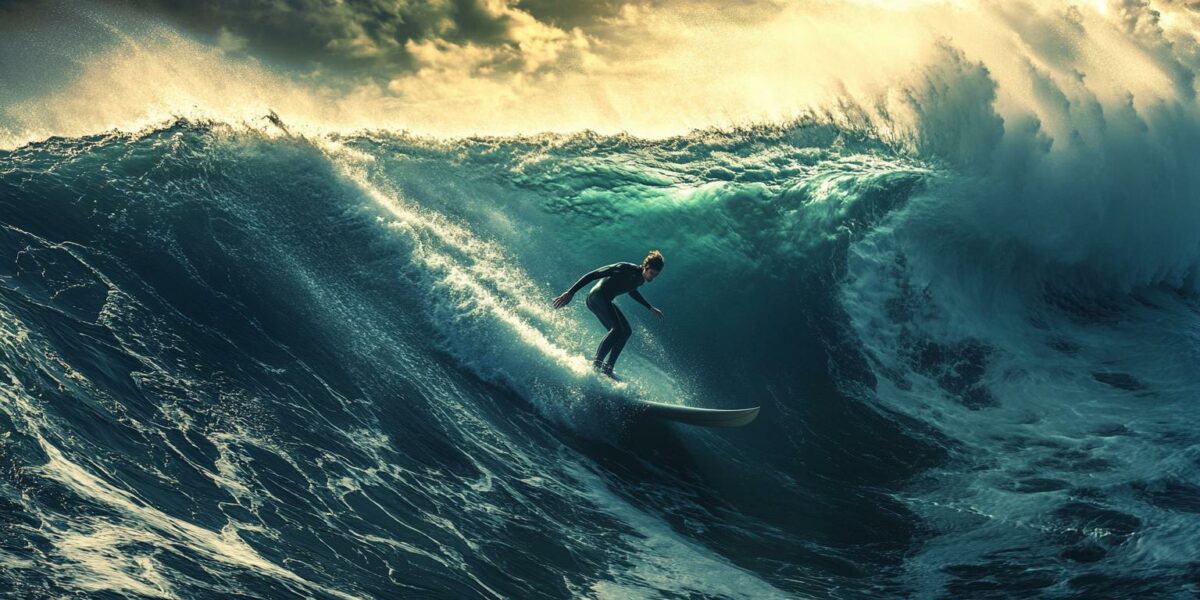Surfing’s Surprising Ally in Climate Protection
A groundbreaking study from Oregon State University reveals that the very waves surfers chase can play a crucial role in fighting climate change. The research highlights the significance of surf conservation in protecting vital carbon stocks, which are essential in mitigating global warming.
Jacob Bukoski, an Assistant Professor at Oregon State University, emphasized that their findings present a unique opportunity. By conserving surf breaks, we can significantly bolster efforts to safeguard climate-critical carbon stored in natural ecosystems.
The study uncovered 88 million metric tons of “irrecoverable carbon” in land-based ecosystems near 3,600 surf breaks globally. This type of carbon is irreplaceable within 30 years if lost, making it crucial for climate action targets set for 2050.
According to Bukoski, “Our results suggest a significant opportunity for surf conservation to strengthen protection of climate-critical carbon stocks.” This revelation underscores the dual benefit of preserving both surf breaks and their surrounding ecosystems.
Protecting Ecosystems, One Wave at a Time
Surf breaks are not just playgrounds for surfers; they are vital components of rich and biodiverse ecosystems. These natural formations, such as rocks and coral reefs, create waves by capturing the ocean’s energy.
Coral reefs, in particular, are hotspots of marine biodiversity. They support a vast array of marine life, including fish and other sea creatures. Protecting these reefs from destruction is crucial for maintaining their ecological and climate benefits.
When irrecoverable carbon from these ecosystems is released into the atmosphere, it exacerbates climate change by increasing atmospheric carbon levels. Therefore, conserving these areas is essential for both environmental and climate health.
This study underscores the importance of protecting surf breaks and their surrounding environments, highlighting the interconnectedness of recreational activities and global climate goals. Key points include:
- Surf breaks contribute to climate-critical carbon storage.
- Conserving these areas helps prevent additional carbon emissions.
- Healthy ecosystems support marine biodiversity and climate resilience.
The Urgency of Surf Conservation
With climate change policies aiming for significant milestones by 2050, the urgency of preserving surf breaks becomes apparent. The study’s findings suggest that surf conservation could be a pivotal addition to existing climate strategies.
Professor Bukoski noted that the 30-year period is a critical window for achieving international climate goals. Therefore, immediate actions to protect these carbon-rich ecosystems are imperative for long-term climate stability.
Moreover, the study emphasizes the dual benefit of surf conservation: protecting both the sport’s future and the planet’s health. This dual approach can inspire broader support for environmental preservation among diverse communities.
At the end of the day, as Bukoski aptly put it, “We should be shredding waves, not ecosystem carbon.” This sentiment captures the essence of the study’s message and the potential impact of surf conservation on global climate efforts.
Global Implications and Future Directions
The findings from Oregon State University’s study have far-reaching implications beyond the world of surfing. They highlight how recreational activities can intersect with significant environmental conservation efforts.
Protecting surf breaks can serve as a model for other conservation initiatives that leverage popular activities to achieve broader ecological goals. This approach can help garner wider public support for climate action.
Additionally, the study calls for more research into the connections between various ecosystems and their roles in climate mitigation. Understanding these links can enhance our strategies for preserving natural carbon stocks.
Ultimately, the study from Oregon State University sets a precedent for integrating recreational and environmental goals. By highlighting the hidden climate benefits of surf conservation, it opens new avenues for innovative and effective climate solutions.



Audrey
Interesting read, but I’m curious about the methods used in the study. Can you provide more details?
Cameron
Why isn’t this kind of research more widely known? It’s crucial!
sebastian_odyssey
So, surfers are now climate warriors too? That’s pretty cool!
avery
Is there a way we can support surf conservation efforts locally?
adeline
This is unbelievable! Who knew surfing had such an impact?
GabriellaGalaxy
Great article! Thanks for sharing this important information. 🌟
Oscar
How exactly does conserving surf breaks prevent carbon emissions?
alexander
Wow, I had no idea surfing could help fight climate change! 🌊